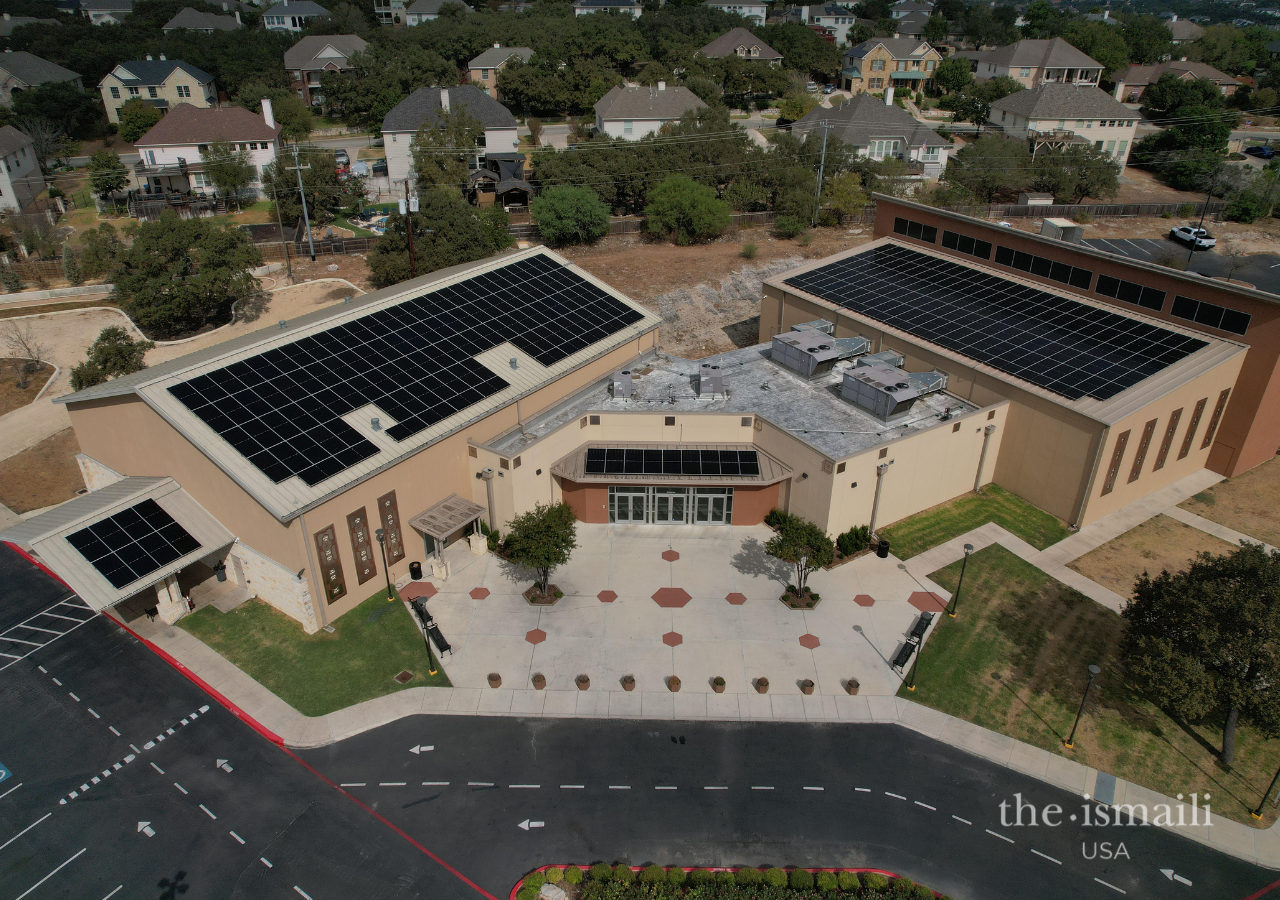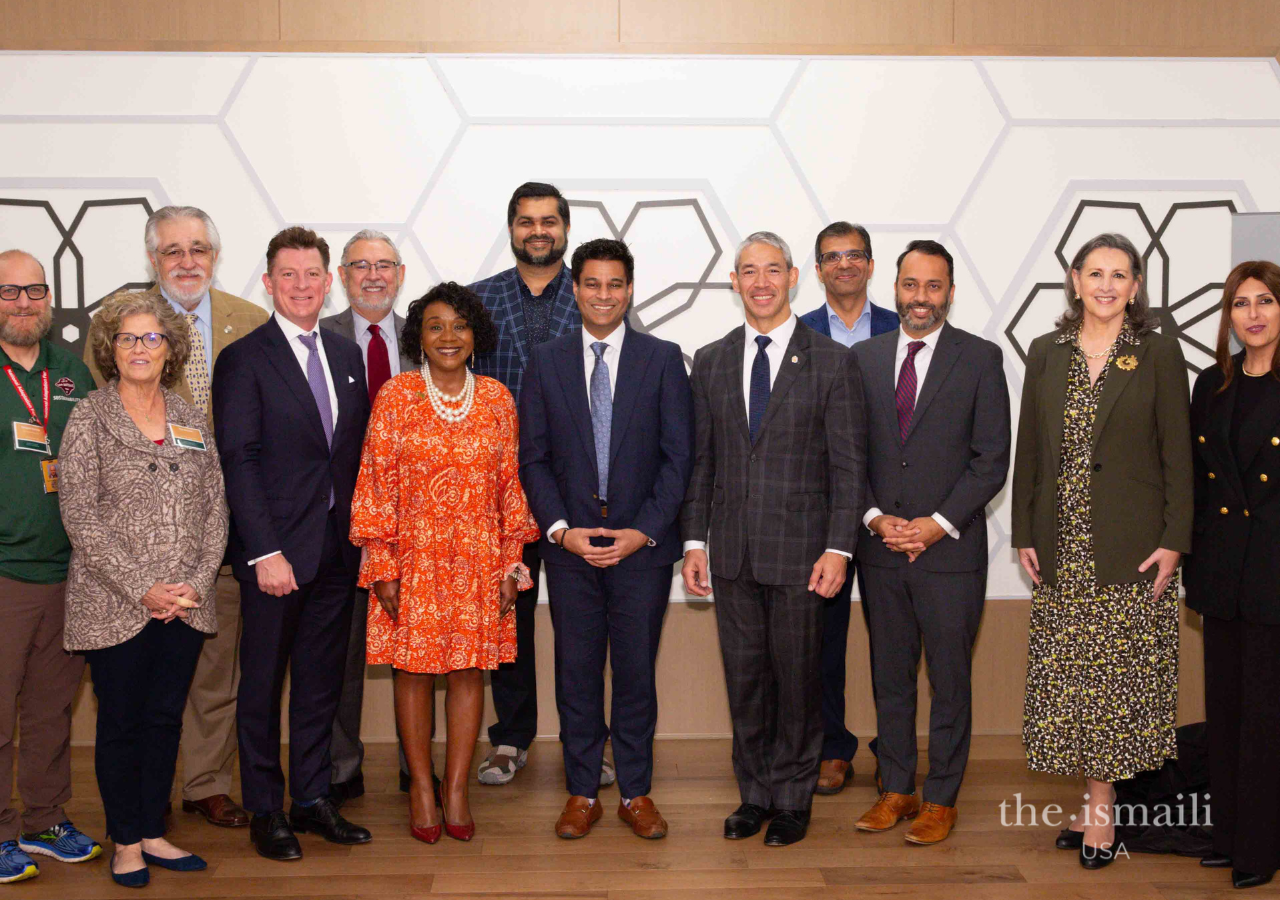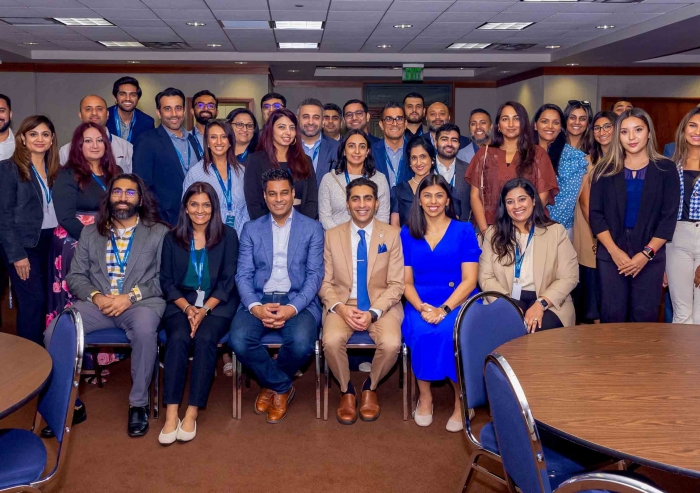On December 16, 2024, the San Antonio Jamatkhana became the first purpose-built Jamatkhana in the United States to install solar panels, an achievement commemorated through a historic “Flip the Switch” event. The literal flipping of a switch marked the Jamatkhana’s official transition to harnessing renewable energy as its main power source, by the installation of a 145 kW rooftop solar system featuring 268 panels. The solar panel system is estimated to produce 206,000 kWh of clean energy annually, offsetting 142 metric tons (MT) of CO2 emissions and meeting 96% of the building’s energy needs. This is equivalent to providing energy for approximately 19 households for a year.
The installation of the solar panels demonstrates the Ismaili community’s commitment to achieving net zero carbon emissions from operations by 2030, consistent with the Aga Khan Development Network’s (AKDN) global vision. AKDN’s environmental efforts also align with the United Nations Sustainable Development Goals, particularly Goal 7: Affordable and Clean Energy and Goal 13: Climate Action.
San Antonio Mayor Ron Nirenberg, who attended the event that took place at San Antonio Jamatkhana, praised the community’s goal of zero carbon emissions from operations by 2030, stating, “The Ismaili community's adoption of renewable energy in San Antonio reflects the community’s leadership in sustainability and sets an example for other faith communities and organizations in our city to follow.”
The “Flip the Switch” event not only celebrates the physical renovations made to the Jamatkhana but also emphasizes the intersections between faith, community, and our shared responsibility to our planet. President Faisal Momin of the Ismaili Council for the Southwestern United States emphasized the significance of this event, stating, “This is not just a technical milestone but rather a reflection of our deeply rooted values guided by the ethical principles of Islam and the vision of our spiritual leader, His Highness the Aga Khan, who inspires us to care for God’s creation and exemplify social responsibility. By embracing renewable energy, we are not only reducing our reliance on fossil fuels but also sending a message of hope and responsibility to future generations.”
Beyond solar energy, the San Antonio Jamatkhana incorporates a range of sustainable features including:
- Low-flow plumbing fixtures to conserve water
- Energy-efficient LED lighting and motion-sensor switches
- Use of reusable and biodegradable products in place of single use plastic.
Taking note of the community’s efforts, Mayor Nirenberg emphasized the significance of the voluntary initiative, stating, “This community’s work is reflective of the strong ethos of service and giving back to our broader community, which we like to project from San Antonio to the world.”
The communities sustainability efforts are being tracked monthly to ensure measurable progress toward achieving its goal. The "Flip the Switch" event not only commemorates a groundbreaking achievement but also hopes to inspire others into action.
Douglas Melnick, Chief Sustainability Officer for San Antonio, further stressed the importance of collaboration in this endeavor, noting, “Addressing climate change is about community — this is not something the city, the county, or the state will be able to address by themselves.”
In recognition of the collective effort required to make a lasting and positive difference in our world, Ismaili CIVIC, an organization focused on advancing community and environmental efforts, came into existence years ago, partnering locally to undertake various projects, from beautifying green spaces to engaging in tree planting during Global Ismaili CIVIC Day. Events such as the “Share Your Blessings” drive in collaboration with the San Antonio Food Bank, reflect a collective approach to community building and sustainability.
The Ismaili Jamatkhana in San Antonio has achieved a significant milestone for sustainability that will benefit generations to come. We plan to undertake similar sustainability projects at additional Jamatkhanas in the future. Beyond a celebration of progress—this event is a call to action for all to embrace sustainable living and support a healthier planet.












